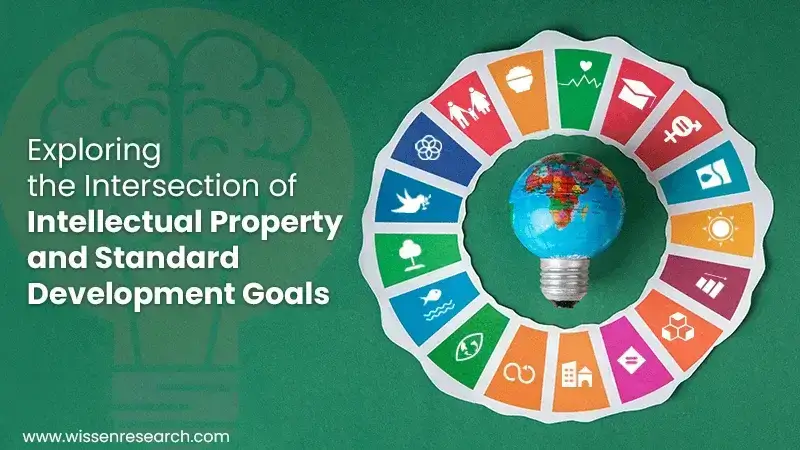Subscribe our newsletter
Please Subscribe our news letter and get update.


“Sustainable development is the pathway to the future we want for all. It offers a framework to generate economic growth, achieve social justice, exercise environmental stewardship, and strengthen governance.” Ban Ki-moon
In today’s rapidly evolving global landscape, the intersection of intellectual property (IP) and sustainable development goals (SDGs) has become increasingly significant. This year’s World IP Day theme, “IP and the SDGs: Building Our Common Future With Innovation and Creativity,” highlights the same.
Intellectual property rights serve as powerful tools to drive innovation, foster economic growth, and promote sustainability across various sectors. This post will shed light on the pivotal role of intellectual property in advancing sustainable development goals.
Keep on reading to explore the connection between intellectual property and standard development goals (SDGs).
Watch our exclusive World IP Day Video.
Role of Intellectual Property (IP) in advancing Sustainable Development Goals (SDGs)
1. Driving Innovation and Technological Advancement
– Intellectual property rights incentivize innovation by providing creators and innovators with exclusive rights to their inventions and creations. This encourages investment in research and development efforts aimed at addressing pressing global challenges, such as climate change, poverty, and healthcare disparities.
– Patents, trademarks, and copyrights play a crucial role in protecting intellectual assets, fostering collaboration, and facilitating the transfer of technology and knowledge to support sustainable development initiatives worldwide.
2. Promoting Economic Growth and Job Creation
– Intellectual property rights contribute to economic growth by promoting entrepreneurship, fostering the growth of small and medium-sized enterprises (SMEs), and attracting investments in innovative industries.
– By safeguarding intellectual assets, IP rights create opportunities for businesses to commercialize innovations, generate revenue streams, and create employment opportunities, thereby driving inclusive and sustainable economic development.
3. Facilitating Access to Essential Technologies and Resources
– Intellectual property mechanisms, such as patent pools, licensing agreements, and technology transfer initiatives, facilitate access to essential technologies, knowledge, and resources needed to address critical global challenges.
– Through strategic collaborations and partnerships, IP rights can enable the dissemination of life-saving medicines, renewable energy technologies, and agricultural innovations to communities in need, promoting equitable access to essential resources and fostering sustainable development.
Also Read: Unveiling the Power of Green Trademarks: Sustaining Innovation and Environmental Responsibility
4. Supporting Environmental Conservation and Resource Management
– Intellectual property frameworks incentivize the development and adoption of environmentally friendly technologies, products, and processes aimed at reducing environmental impact, conserving natural resources, and mitigating climate change.
– Trademarks and geographical indications play a vital role in promoting sustainable consumption and production patterns by highlighting eco-friendly products, organic agriculture practices, and traditional knowledge systems that contribute to environmental conservation and biodiversity preservation.
5. Strengthening Global Collaboration and Partnerships
– Intellectual property serves as a catalyst for international collaboration, knowledge-sharing, and capacity-building initiatives aimed at achieving sustainable development goals.
– By promoting the exchange of best practices, expertise, and technologies, IP rights enable governments, businesses, civil society organizations, and research institutions to work together towards common objectives, fostering innovation ecosystems that drive sustainable development on a global scale.
Conclusion
Intellectual property rights play a multifaceted role in advancing sustainable development goals by fostering innovation, driving economic growth, promoting access to essential technologies, supporting environmental conservation, and strengthening global collaboration. To harness the full potential of intellectual property for sustainable development, it is essential to adopt inclusive and balanced IP policies that prioritize the needs of society, promote equitable access to knowledge and innovation, and address emerging challenges in an ever-changing world.